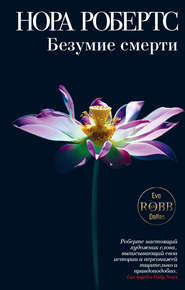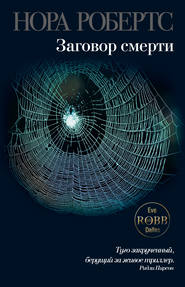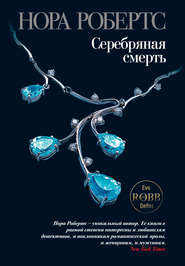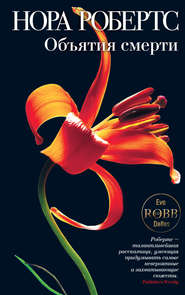По всем вопросам обращайтесь на: info@litportal.ru
(©) 2003-2025.
✖
Hidden Star: the classic story from the queen of romance that you won’t be able to put down
Автор
Год написания книги
2019
Настройки чтения
Размер шрифта
Высота строк
Поля
She blinked, swallowed. “What?”
“From the look of M.J.’s writing, he or she’s a lefty. You’re right-handed. You’ve got neat, simple penmanship, M.J.’s got an impatient scrawl. The note was in your pocket. Odds are you’re Bailey.”
“Bailey.” She tried to absorb the name, the hope of it, the feel and taste of identity. But it was dry and unfamiliar. “It doesn’t mean anything.”
“It means we have something to call you, and someplace to start. Tell me what you did next.”
Distracted she blinked at him. “Oh, I… There was a phone book in the room. I looked up detective agencies.”
“Why’d you pick mine?”
“The name. It sounded strong.” She managed her first smile, and though it was weak, it was there. “I started to call, but then I thought I might get put off, and if I just showed up… So I waited in the room until it was office hours, then I walked for a little while, then I got a cab. And here I am.”
“Why didn’t you go to a hospital? Call a doctor?”
“I thought about it.” She looked down at her hands. “I just didn’t.”
She was leaving out big chunks, he mused. Going around his desk, he opened a drawer, pulled out a candy bar. “You didn’t say anything about stopping for breakfast.” He watched her study the candy he offered with puzzlement and what appeared to be amusement. “This’ll hold you until we can do better.”
“Thank you.” With neat, precise movements, she unwrapped the chocolate bar. Maybe part of the fluttering in her stomach was hunger. “Mr. Parris, I may have people worried about me. Family, friends. I may have a child. I don’t know.” Her eyes deepened, fixed on a point over his shoulder. “I don’t think I do. I can’t believe anyone could forget her own child. But people may be worried, wondering what happened to me. Why I didn’t come home last night.”
“You could have gone to the police.”
“I didn’t want to go to the police.” This time, her voice was clipped, definite. “Not until… No, I don’t want to involve the police.” She wiped her fingers on a fresh tissue, then began to tear it into strips. “Someone may be looking for me who isn’t a friend, who isn’t family. Who isn’t concerned with my well-being. I don’t know why I feel that way, I only know I’m afraid. It’s more than just not remembering. But I can’t understand anything, any of it, until I know who I am.”
Maybe it was those big, soft, moist eyes staring up at him, or the damsel-in-distress nerves of her restless hands. Either way, he couldn’t resist showing off, just a little.
“I can tell you a few things already. You’re an intelligent woman, early-to-mid-twenties. You have a good eye for color and style, and enough of a bankroll to indulge it with Italian shoes and silk suits. You’re neat, probably organized. You prefer the understated to the obvious. Since you don’t evade well, I’d say you’re an equally poor liar. You’ve got a good head on your shoulders, you think things through. You don’t panic easily. And you like chocolate.”
She balled the empty candy wrapper in her hand. “Why do you assume all that?”
“You speak well, even when you’re frightened. You thought about how you were going to handle this and went through all the steps, logically. You dress well—quality over flair. You have a good manicure, but no flashy polish. Your jewelry is unique, interesting, but not ornate. And you’ve been holding back information since you walked through the door because you haven’t decided yet how much you’re going to trust me.”
“How much should I trust you?”
“You came to me.”
She acknowledged that, rose and walked to his window. The rain drummed, underscoring the vague headache that hovered just behind her eyes. “I don’t recognize the city,” she murmured. “Yet I feel I should. I know where I am, because I saw a newspaper, the Washington Post. I know what the White House and the Capitol look like. I know the monuments—but I could have seen them on television, or in a book.”
Though it was wet from incoming rain, she rested her hands on the sill, appreciated the coolness there. “I feel as though I dropped out of nowhere into that ugly hotel room. Still, I know how to read and write and walk and talk. The cabdriver had the radio on, and I recognized music. I recognized trees. I wasn’t surprised that rain was wet. I smelled burned coffee when I came in, and it wasn’t an unfamiliar odor. I know your eyes are green. And when the rain clears, I know the sky will be blue.”
She sighed once. “So I didn’t drop out of nowhere. There are things I know, things I’m sure of. But my own face means nothing to me, and what’s behind the face is blank. I may have hurt someone, done something. I may be selfish and calculating, even cruel. I may have a husband I cheat on or neighbors I’ve alienated.”
She turned back then, and her face was tight and set, a tough contrast to the fragility of lashes still wet from tears. “I don’t know if I’m going to like who you find when you find me, Mr. Parris, but I need to know.” She set the bag on his desk, hesitated briefly, then opened it. “I think I have enough to meet your fee.”
He came from money, the kind that aged and increased and propagated over generations. But even with his background, he’d never seen so much in one place at one time. The canvas bag was filled with wrapped stacks of hundred-dollar bills—all crisp and clean. Fascinated, Cade took out a stack, flipped through. Yes, indeed, he mused, every one of the bills had Ben Franklin’s homely and dignified face.
“I’d have to guess about a million,” he murmured.
“One million, two hundred thousand.” Bailey shuddered as she looked into the bag. “I counted the stacks. I don’t know where I got it or why I had it with me. I may have stolen it.”
Tears began to swim again as she turned away. “It could be ransom money. I could be involved in a kidnapping. There could be a child somewhere, being held, and I’ve taken the ransom money. I just—”
“Let’s add a vivid imagination to those other qualities.”
It was the cool and casual tone of his voice that had her turning back. “There’s a fortune in there.”
“A million two isn’t much of a fortune these days.” He dropped the money back in the bag. “And I’m sorry, Bailey, you just don’t fit the cold, calculating kidnapper type.”
“But you can check. You can find out, discreetly, if there’s been an abduction.”
“Sure. If the cops are involved, I can get something.”
“And if there’s been a murder?” Struggling to stay calm, she reached into the bag again. This time she took out a .38.
A cautious man, Cade nudged the barrel aside, took it from her. It was a Smith and Wesson, and at his quick check, he discovered it was fully loaded. “How’d this feel in your hand?”
“I don’t understand.”
“How’d it feel when you picked it up? The weight, the shape?”
Though she was baffled by the question, she did her best to answer thoroughly. “Not as heavy as I thought it should. It seemed that something that had that kind of power would have more weight, more substance. I suppose it felt awkward.”
“The pen didn’t.”
This time she simply dragged her hands through her hair. “I don’t know what you’re talking about. I’ve just shown you over a million dollars and a gun. You’re talking about pens.”
“When I handed you a pen to write, it didn’t feel awkward. You didn’t have to think about it. You just took it and used it.” He smiled a little and slipped the gun into his pocket, instead of the bag. “I think you’re a lot more accustomed to holding a pen than a .38 special.”
There was some relief in that, the simple logic of it. But it didn’t chase away all the clouds. “Maybe you’re right. It doesn’t mean I didn’t use it.”
“No, it doesn’t. And since you’ve obviously put your hands all over it, we can’t prove you didn’t. I can check and see if it’s registered and to whom.”
Her eyes lit with hope. “It could be mine.” She reached out, took his hand, squeezed it in a gesture that was thoughtless and natural. “We’d have a name then. I’d know my name then. I didn’t realize it could be so simple.”
“It may be simple.”
“You’re right.” She released his hand, began to pace. Her movements were smooth, controlled. “I’m getting ahead of myself. But it helps so much you see, so much more than I imagined, just to tell someone. Someone who knows how to figure things out. I don’t know if I’m very good at puzzles. Mr. Parris—”
“Cade,” he said, intrigued that he could find her economical movements so sexy. “Let’s keep it simple.”
“Cade.” She drew in a breath, let it out. “It’s nice to call someone by name. You’re the only person I know, the only person I remember having a conversation with. I can’t tell you how odd that is, and, right now, how comforting.”
“Why don’t we make me the first person you remember having a meal with? One candy bar isn’t much of a breakfast. You look worn out, Bailey.”
It was so odd to hear him use that name when he looked at her. Because it was all she had, she struggled to respond to it. “I’m tired,” she admitted. “It doesn’t feel as if I’ve slept very much. I don’t know when I’ve eaten last.”
“How do you feel about scrambled eggs?”

















